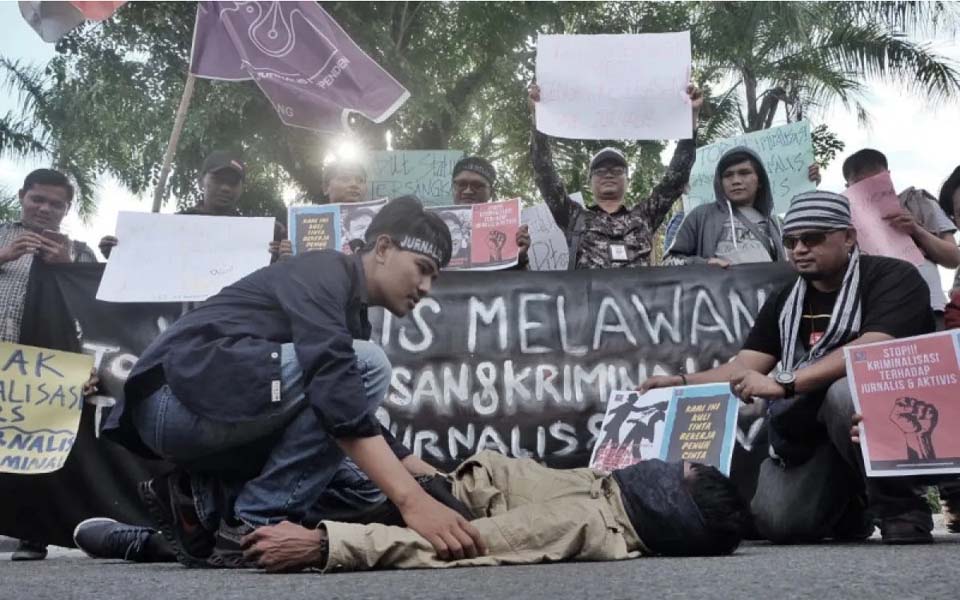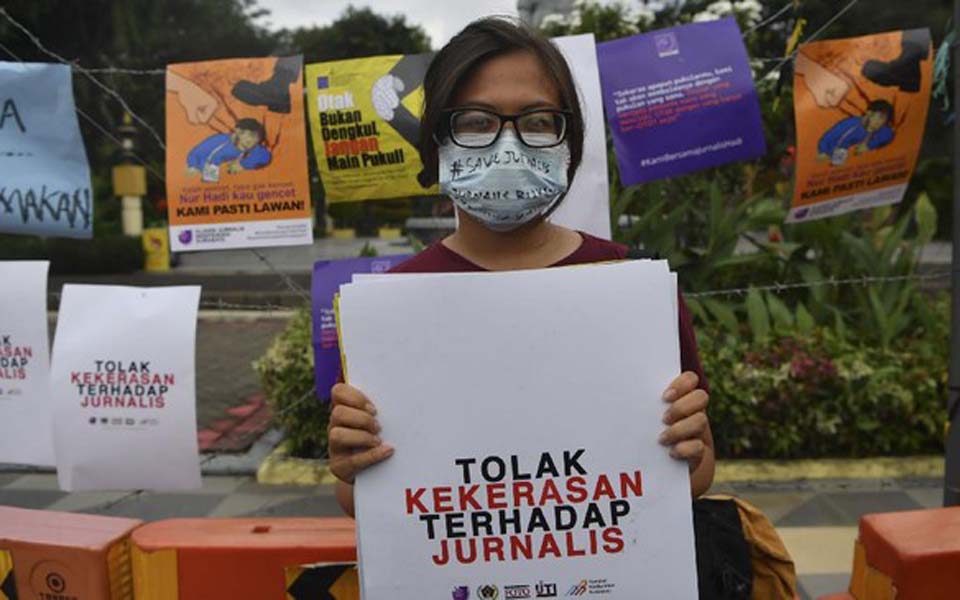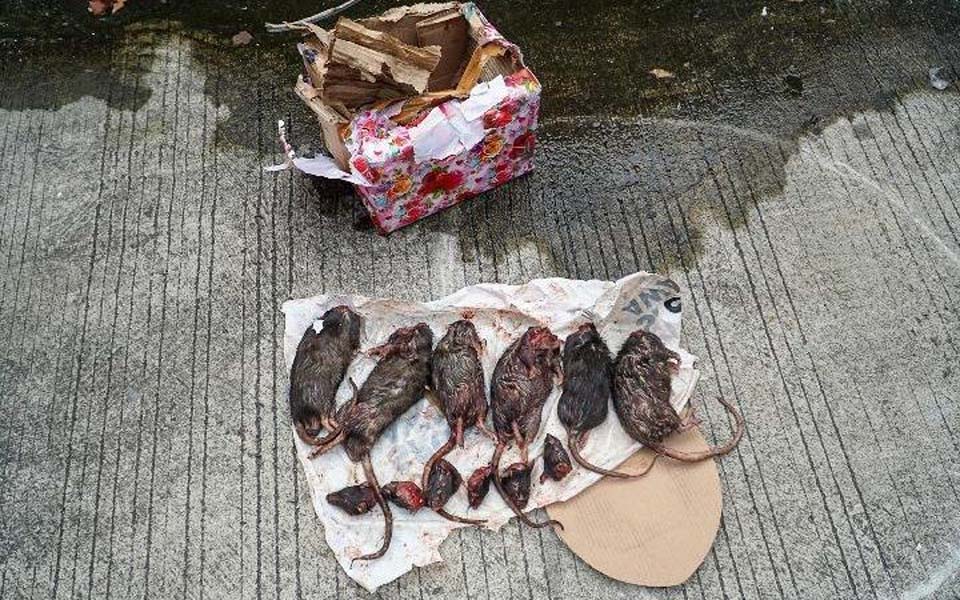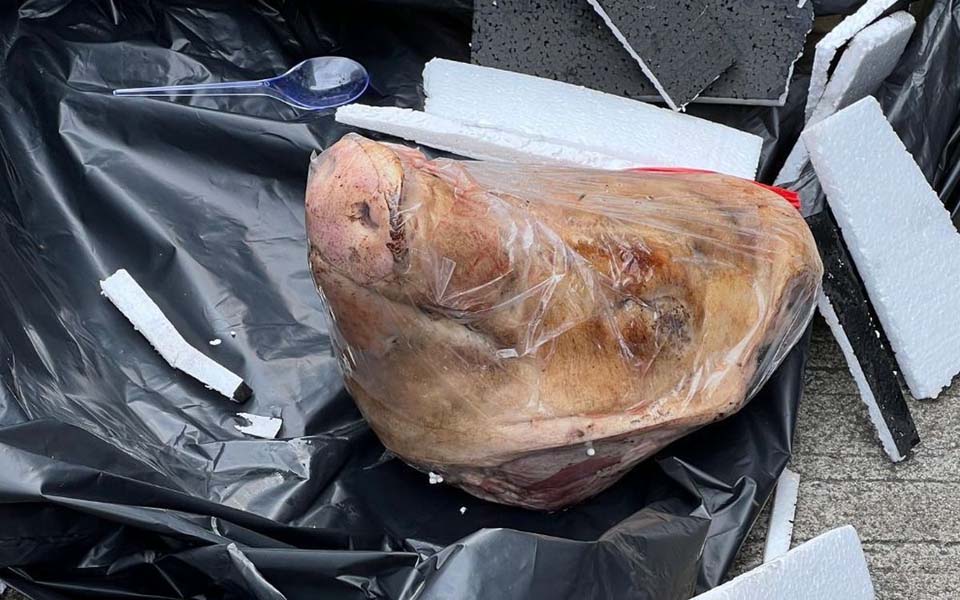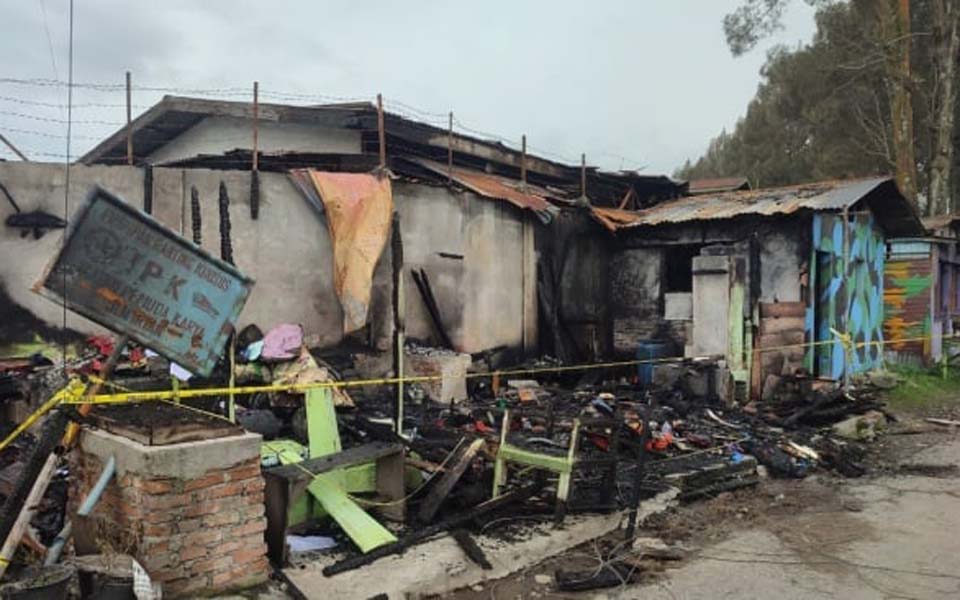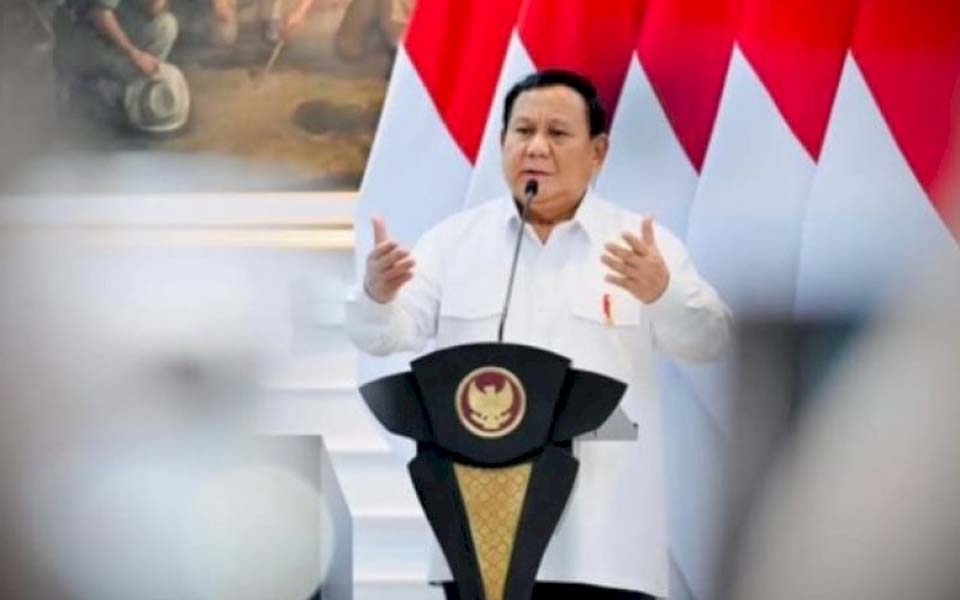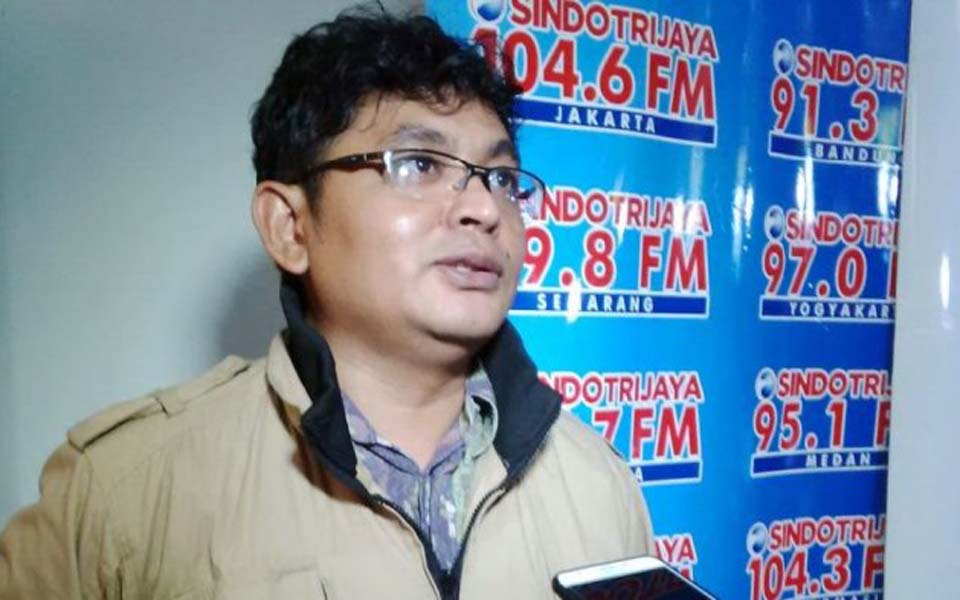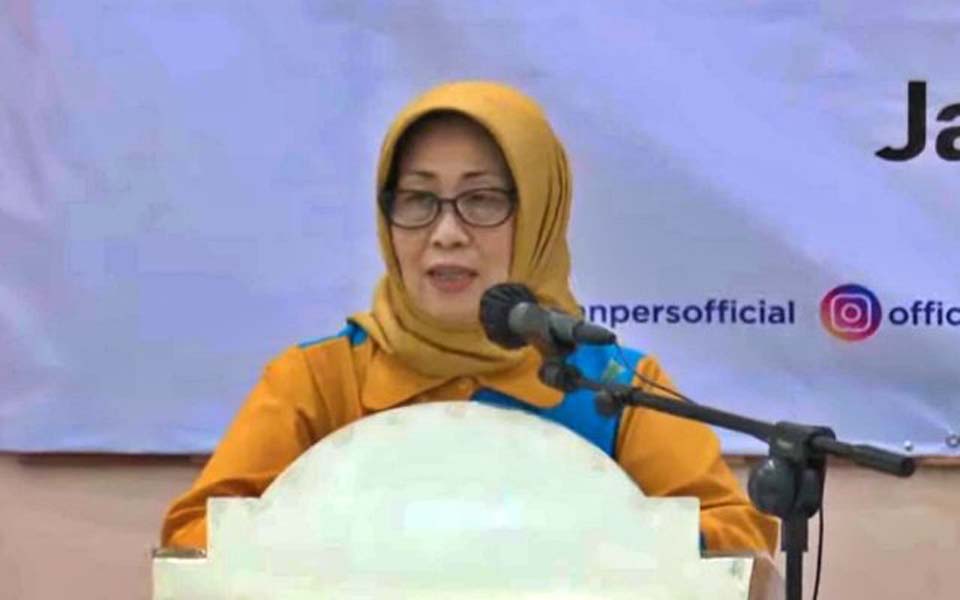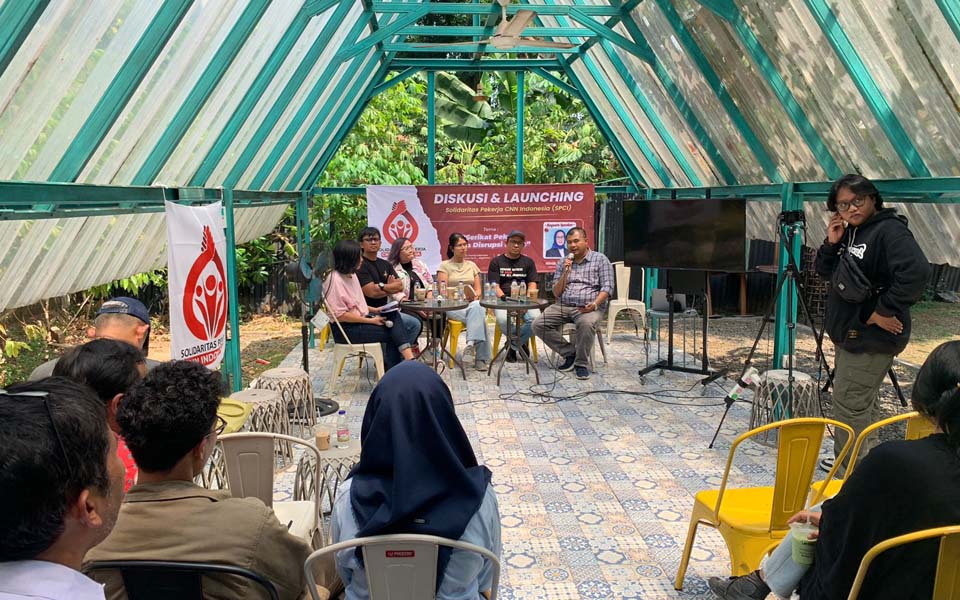Jakarta – The prison sentence handed down against journalist Muhammad Asrul in Palopo, South Sulawesi, on November 23 has raised concerns about press freedom in Indonesia which should be protected by the constitution and specific legislation.
Asrul was indicted under the Information and Electronic Transaction (ITE) Law for an article he wrote that was published by the media outlet where he worked. Based on the article, Asrul was charged with violating the articles on defamation over a journalistic investigation into a corruption case that he was conducting which cited the name of one of the Palopo mayor's children in 2019.
Prior to this, Diananta Putra Sumedi, an editor with the media outlet Banjarhits, based in South Kalimantan, was indicted under the ITE Law and has to serve a 3-and-a-half year sentence at the Kotabaru district police detention center.
And these are just the most recent examples of the many cases of criminalisation for reporting since the era of reformasi – the political reform process that began in 1998 – or birth of Law Number 40/1999 on the Press.
Press Law ignored
Indonesian Alliance of Journalists (AJI) General Chairperson Sasmito Madrim says that the criminalisation of journalists is because law enforcement officials do not understand the Press Law.
Because, said Hadrim, cases which are related to journalistic products or works should be resolved by the Press Council and not enter the legal realm.
"The problem is that law enforcement officials don't understand the Press Law because disputes related to news reporting should be resolved by the Press Council", Hadrim told CNN Indonesia on the evening of Thursday November 25.
Article 15 Paragraph 2(d) of the Press Law reads, "(The Press Council) shall provide consideration and endeavor to resolve public complaints in cases which are related to press news reporting".
Hadrim believes that law enforcement officials, from the police to the Attorney Generals' Office (AGO) and judges, are not acting professionally, because they ignore the Press Law in handling cases related to journalistic products.
"Meaning they don’t understand the law, it's guaranteed by the Press Law but then tried [in court], it should be resolved by the Press Council and not then pursued", he said.
Based on this, said Hadrim, these three law enforcement institutions need to conduct and evaluation of the handling of cases related to journalists or the press.
Moreover, Hadrim says that President Joko "Jokowi" Widodo should also conduct and evaluation of the police, AGO and judges so that the criminalisation of journalists does not happen again.
Not only that, he continued, supervisory bodies such as the National Police Commission (Kompolnas), the AGO Commission and the Judicial Commission must also pay attention to the criminalisation of journalists.
"It must be said that that this is why the Press Law is trampled on by law enforcement officials, I think the problem lies there", said Hadrim.
Threat to press freedom
The Institute for Criminal Justice Reform (ICJR) says that the sentencing of Muhammad Asrul in Palopo increases the threat to press freedom in Indonesia. Because of this therefore, the ICJR is urging the police headquarters, the AGO and the Supreme Court to evaluate its ranks.
In an official press release ICJR researcher Susitra Digra said that Asrul's sentence threatens press freedom in Indonesia for three reasons.
First, press disputes are not a crime and should be resolved through the Press Council. Press Council Regulation Number 01/Peraturan-DP/VII/2017 states that the Press Council must handle complaints in police or court cases which could threaten press freedom.
The ICJR also warned that non-criminal mechanisms in press disputes must be pursued first. This is supported by Supreme Court Ruling Number 1608K/Pid/2005 which states that criminal cases which do not strengthen the press in fact threaten press freedom.
Joint decree
The Communication and Information Minister, the Attorney General and the Indonesian police chief recently signed a joint decree (SKB) on Guidelines for Implementing Specific Articles in Law Number 11/2008 on Information and Electronic Transaction (the ITE Law).
The joint decree states that news reports are journalistic works which, if they are challenged, it must be addressed through the Press Law and must involved the Press Council.
"In the case of Muhammad Asrul, although there was a statement by the Press Council stating that the report was a journalistic work, the case still ended up in the courts", said Digra.
"This shows that law enforcement officials do not in fact follow the stipulations under the SKB as they should", added Digra.
The ICJR also believes that Arsul's conviction is a black mark on the government which currently appears unable to provide a sense of security for press freedom.
The ICJR is of the view that the sentence handed down by the Palopo city District Court judges was wrong and only adds to the bad record on press freedom in Indonesia.
ITE Law revisions
Sasmito Madrim highlighted the use of the ITE Law in cases which have ensnared journalists because there are many cases where the ITE Law was applied when in fact it was related to journalistic works.
Madrim explained that AJI has long been pushing the government to revise the ITE law, particularly the catch-all articles within in it.
"We don't reject the ITE Law as such, but the catch-all articles must be revised completely, it's the catch-all articles that we are challenging", said Madrim.
Madrim said that the catch-all articles in the law must be resolved immediately so the criminalisation of journalists not continue to be repeated.
"This is a problem which must indeed be resolved by the leaders of these three (law enforcement) institutions, including also perhaps the president, does President [Widodo] have a commitment to press freedom or not", he asked.
Toothless tiger
Speaking separately, Southeast Asia Freedom of Expression Network (SAFEnet) Executive Director Damar Juniarto also said that the Press Council's recommendations on disputes involving journalistic products are often not heeded by law enforcement officials.
Juniarto believes that the Press Council must reflect upon or evaluate if there are other more effective means to protect journalists, particularly those indicted under the ITE Law.
"If all the recommendations on journalists [by the Press Council] are ignored or not paid attention to then it means that all journalists could potentially be charged under the ITE Law, the Press Council's recommendations are like a toothless tiger, they have no power", said Juniarto.
Above all, said Juniarto, it is the avenues that exist within the ITE Law which result in it being used to repeatedly criminalise journalists.
Moreover the ITE Law, continued Juniarto, is often taken advantage of by certain parties to silence other parties. "In the ITE Law this avenue is open [to abuse]", he said.
Furthermore, Juniarto said that the Press Council must promote communication or dialogue with related law enforcement agencies on the enforcement of the ITE Law.
This is related to the enforcement of Article 8 of the Press Law which states that in pursuing their profession, journalists are legally protected.
"Promote dialogue or promote serious attention from various parties that for example journalists cannot be indicted under the ITE Law", he said. (dis/kid)
[Translated by James Balowski. The original title of the article was "Vonis Bui Jurnalis karena Berita dan Matinya Perlindungan UU Pers".]






